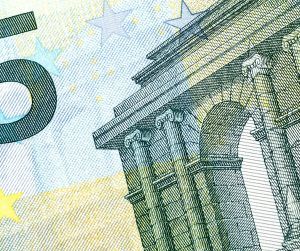IVAs are one of the most popular debt solutions in England, Wales and Northern Ireland – in the first three quarters of 2017 alone, 44,400 people used one to help sort out their debts.
Clearly, if you need some help with debt, you are not alone. An IVA could be the right solution to give you a fresh start and get your finances back on track.
Why choose Creditfix?
What does IVA stand for?
IVA stands of Individual Voluntary Arrangement. An IVA is a legally binding arrangement made between you and your creditors to deal with your debts in a way that’s affordable for your individual circumstances.
The scheme is government-backed, meaning that once your creditors have agreed to the terms of an IVA, they cannot initiate court action against you, or even continue to contact you.
How does an Individual Voluntary Arrangement (IVA) work?
An IVA works by allowing you to write off debt which you would not be able to pay back in a reasonable length of time, without having to go through the process of bankruptcy.
Bankruptcy is usually considered to be the last resort for dealing with unmanageable debt, since it puts your assets, including any property or vehicles you might own, at risk.
IVAs, on the other hand, allows you more control. You will retain your assets and instead single monthly payment towards your unsecured debts. These monthly payments vary depending on what you can afford.
These repayments aren’t for a set amount of time, but usually continue for five years, at the end of which, any remaining debt you owe is written off.
Am I eligible for an IVA?
To be eligible for an IVA, you must meet the following criteria:
- Have at least £6,000 of unsecured debt
- Owe money to two or more creditors
- Live in England or Wales (Scottish residents could consider a Trust Deed, which is a similarly structured solution)
- Be able to pay an affordable amount to your debts each month, usually at least 110
Individual Voluntary Arrangements are best suited to people who can’t cope with their current debt obligations but could afford to repay a proportion of what they owe through smaller, regular instalments.
It’s important to note that IVAs don’t cover secured loans like mortgages, which you will have to continue paying alongside your IVA.
What can I expect from the IVA process?
Meet with your Insolvency Practitioner (IP)
To enter into an IVA, you must speak to a licensed Insolvency Practitioner (IP) – a debt professional who works for the Insolvency Service and is licensed by the Insolvency Practitioners Association. Initially, they will help you decide whether an IVA is right for you.
If they agree that this is the best solution, your Insolvency Practitioners will proceed to ask you about your financial circumstances (employment status, income, expenditure et.) and calculate what you could reasonably afford to pay towards your debts each month.
Your IP will take into account your essential living costs (like rent, child support, and other expenses) so they will not be included in your spare income as part of your income and expenditure check.
Send an IVA proposal to your creditors
Next, the IP will contact each of your creditors, and propose this solution to them. If creditors accounting for 75% of your debts agree to the IVA, it is approved, and all your creditors are bound by its terms, whether they agreed to it or not.
It might seem odd that creditors would agree to a solution which means they will not be repaid in full, but since they will usually be able to recover more of the money with regular payments than by petitioning to make you bankrupt, most creditors are likely to vote in favour of the IVA.
Once your IVA has been agreed
Once the IVA has been agreed upon, you must simply continue to make your IVA payments for the set period of time you agreed with your creditors.
Once your IVA ends, you will no longer receive any communication from your creditors, who will instead be in touch with your IP. IPs do, of course, have to be paid for their services, but these fees are taken from your monthly payments. They don’t affect how much you will be asked to pay, which is based entirely on what you can afford.
IVAs do allow a certain amount of flexibility should your circumstances change, but it is vital to contact your IP and let them know as soon as you think you might have to skip a payment. Missed payments can usually just be added to the end of your IVA.
"Professional staff - they were understanding and non-judgmental. Fantastic, quick service too. Would recommend to anyone!" Michael, SunderlandHow we helped Michael
Can I get an IVA if I’m a homeowner?
If you are a homeowner, you may be required to re-mortgage your home in order to release equity from the property. These funds will then be released towards your IVA in order to repay your creditors more quickly.
If you do not own property, you might be asked to make an extra twelve monthly payments instead.
Are there IVAs for business owners?
One advantage which IVAs have over bankruptcy is that they allow business owners to continue running a limited company, as well as if you’re self-employed as a sole trader.
This was one of the government’s main motivations for introducing IVAs as part of the 1986 Insolvency Act. Following its success helping business owners continue to trade, IVAs began to be offered to individuals.
Will an IVA affect my credit rating?
Entering into an IVA can be a great solution for overcoming unmanageable debt but, like anything, there are a few disadvantages. IVAs are recorded on a public register for their duration plus three months, as well as your credit report, which can negatively impact your credit score.
However, problem debt is likely to negatively impact your score too, so in the long-run, it could improve through your taking action to deal with your debts. If you fail to meet the terms of your IVA, you also run the risk of being made bankrupt, which can be a stressful experience and can result in the loss of assets.
Entering into an IVA can prevent you from working in certain jobs (although the vast majority are unaffected) – mostly in the financial sector, so ensure you check your contract of employment before choosing one.
Where can I get debt advice and more information on IVAs?
For someone with serious debt problems, IVAs can give you a fresh financial start, and write off your debts in a relatively short space of time. This handy online quiz will help you to figure out if you are a good candidate for an IVA.
If you’re wondering whether an IVA is the right debt solution for you, we can help. As the biggest debt management company in the UK, Creditfix can help you work towards a better financial situation.
To discuss your options and get the support you need to deal with your debt today, contact us now on 0800 0431 431 or click the button to get startedWhere can I get more advice on What is an IVA? and other debt solutions?



